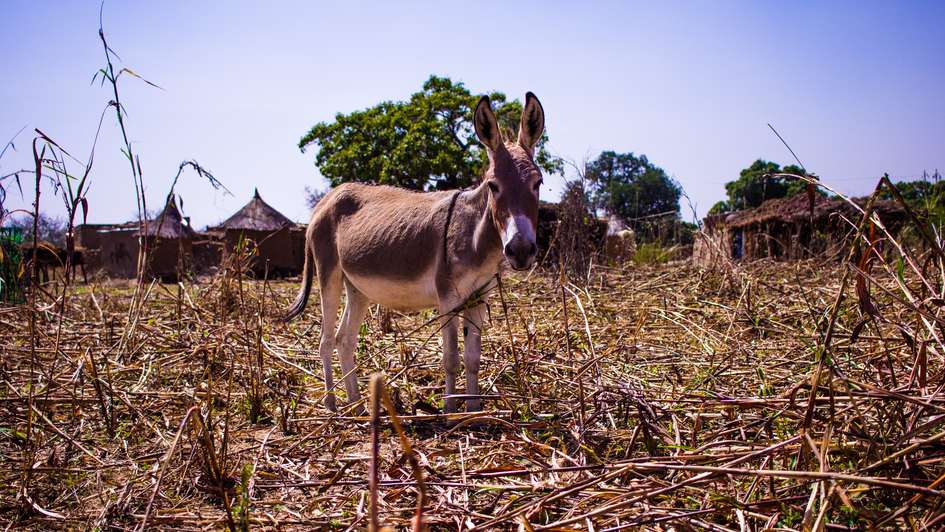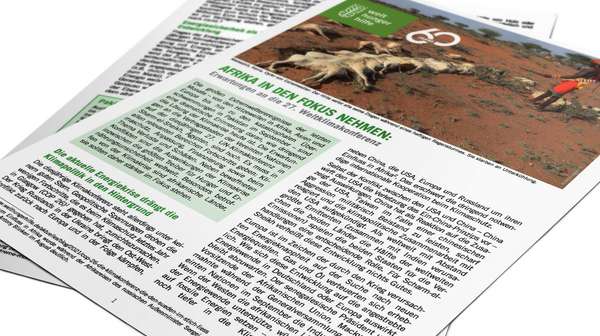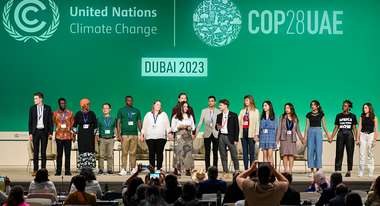What must be accomplished at this year's international climate conference (COP27).
COP27 – Questions of credibility surround Global Shield
The 27th UN Climate Change Conference (COP27) in Sharm-el-Sheik, Egypt, is expected to conclude this weekend. Michael Kühn from Welthungerhilfe is in attendance and takes stock of the developments.

Climate-related risks have driven both risk provision spending and debt to high levels in many countries particularly hard hit by climate change effects. Increasing and securing funding in advance to be disbursed quickly and reliably before or immediately after disasters can reduce the impact of these disasters. This ensures the increased resilience of people living in countries exposed to climate risks, fosters sustainable development, and thus protects the lives and livelihoods of poor and vulnerable people.
Global Shield: The chance for fair compensation of climate loss and damage?
Partly at Germany's initiative, the G7 and most recently the Vulnerable Twenty (V20) Group have now agreed to establish a Global Shield Financing Facility to help address loss and damage. The Global Shield is not the only measure needed to tackle loss and damage – but it should aim to make significant and effective progress in providing and facilitating more and better pre-arranged protection against climate- and disaster-related risks, e.g., by making money available for protection measures at an early stage.
The mobilization of new funding is crucial to the success of the initiative, as is made clear by the V20's interest in the Global Shield. However, this is also the target of criticism from civil society.
The credibility of the Global North is severely damaged by empty promises
As the industrialized countries' previous promise to provide USD 100 billion per year in climate finance from 2020 onwards has not yet been honored, the representatives of the Global South are finding it difficult to warm to the idea of a new financial facility for which funds also need to be provided. The credibility of the Global North has been lost. Moreover, there are concerns that the Global Shield will serve as a substitute for a loss and damage finance facility, which industrialized countries have been hesitant to act upon. The criticism is that the new mechanism is limited in scope and reach and thus runs the risk of delaying the establishment of a genuine facility. That is, it reduces the chance of obtaining binding commitments from governments or international organizations to provide financial assistance or loans in specific cases.
30 years on: recognition for climate damage in Vanuatu
Talks of a financial mechanism to address loss and damage date back to a 1991 request by Vanuatu on behalf of the Alliance of Small Island States, which proposed an insurance pool funded by industrialized countries to cover the financial burden and provide compensation. For the first time in 30 years, the industrialized nations have now acknowledged that these losses and damages do exist and can therefore no longer be overlooked. It is a welcome step forward for negotiations that the issue is on the agenda at COP27.
Time is running out: A decision at COP27 could restore credibility
The discussion on how to set up a loss and damage finance facility is expected to take place in the next two years. But the countries on the front line of climate change cannot and will not wait that long; they are already dealing with the damage today. Now would be a good time to decide on this here in Sharm el Sheikh. This would enable the rich countries to regain lost credibility above and beyond the Global Shield initiative.








